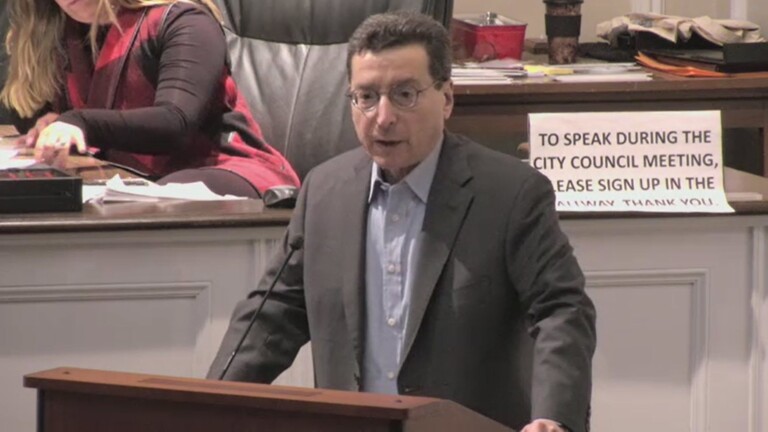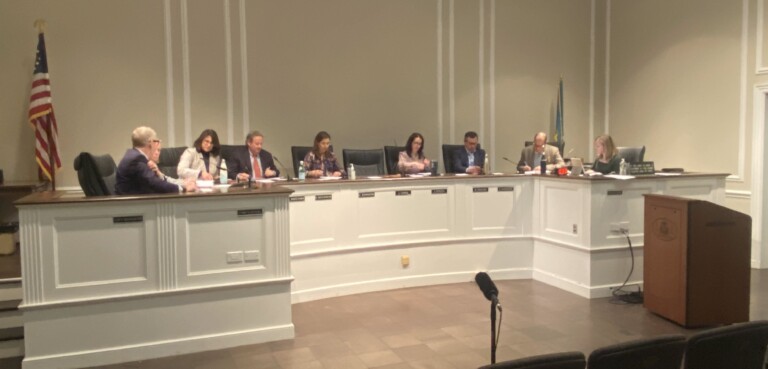Holding Court: Aliens

Holding Court is a series by retired Rye City Court Judge Joe Latwin. Latwin retired from the court in December 2022 after thirteen years of service to the City.
What topics do you want addressed by Judge Latwin? Tell us.

By Joe Latwin
Hey you, get off my lawn!
There’s been a lot of talk recently about deporting aliens. Did you know this has been a law since 1798?
Back then, we were about to enter into war with France. It was an undeclared war with the First French Republic fought entirely at sea. It is referred to as the Quasi War. The French started harassing American ships on the seas, so President Adams sent a delegation to France to negotiate a treaty. Instead, the French, led by Minister Talleyrand, demanded the United States pay a bribe before they would start negotiations. This scandal, which would come to be known as the XYZ Affair, outraged Americans. Congress responded by establishing the United States Navy on April 30, 1798. [Go Navy!]. In addition, Congress passed four laws that were to be known as the Alien and Sedition Acts. One of those acts was the Alien Enemies Act.
The Alien Enemies Act, now codified as 50 United States Code, Title 3, Section 21, provides,
Whenever there is a declared war between the United States and any foreign nation or government, or any invasion or predatory incursion is perpetrated, attempted, or threatened against the territory of the United States by any foreign nation or government, and the President makes public proclamation of the event, all natives, citizens, denizens, or subjects of the hostile nation or government, being of the age of fourteen years and upward, who shall be within the United States and not actually naturalized, shall be liable to be apprehended, restrained, secured, and removed as alien enemies. The President is authorized in any such event, by his proclamation thereof, or other public act, to direct the conduct to be observed on the part of the United States, toward the aliens who become so liable; the manner and degree of the restraint to which they shall be subject and in what cases, and upon what security their residence shall be permitted, and to provide for the removal of those who, not being permitted to reside within the United States, refuse or neglect to depart therefrom; and to establish any other regulations which are found necessary in the premises and for the public safety.
This law has been used three times, each time during a major conflict: the War of 1812, World War I, and World War II. It was a key authority behind detentions, expulsions, and restrictions targeting German, Austro-Hungarian, Japanese, and Italian immigrants based solely on their ancestry.
There are several questions about the application of the law. While we think we can say what declared war is, (both Presidents Wilson and Truman used this law after the ends of the World Wars, respectively), we don’t know when a foreign government threatens or undertakes an “invasion” or “predatory incursion”. Are non-State actors, such as terrorist organizations, foreign governments? Early cases applied the term invasion literally, and predatory incursions were understood to be like raids, such as Benedict Arnold’s 1781 attack on Richmond, VA. In a Supreme Court case, the court refused to strike down the peacetime use of the law see it as a political question falling within the purview of Congress and the President. In another case against President Clinton claiming he was permitting a foreign invasion in violation of the Constitution, the Supreme Court again refused to intervene, leaving the determination of whether there was an invasion to the discretion of the President.
The use of the Alien Enemies Act to compel the force internment of people of Japanese ancestry during World War II, was acknowledged as a grave injustice and reparations were awarded to the victims. The possibility of once again using the Alie Enemies Act to deport aliens requires the utmost care to prevent injustice.






